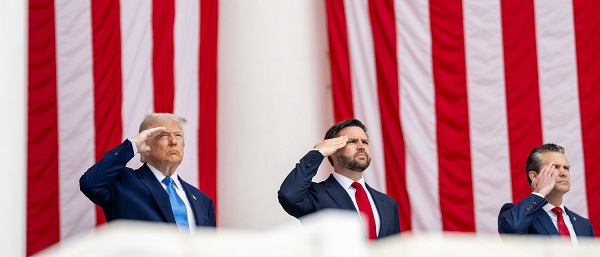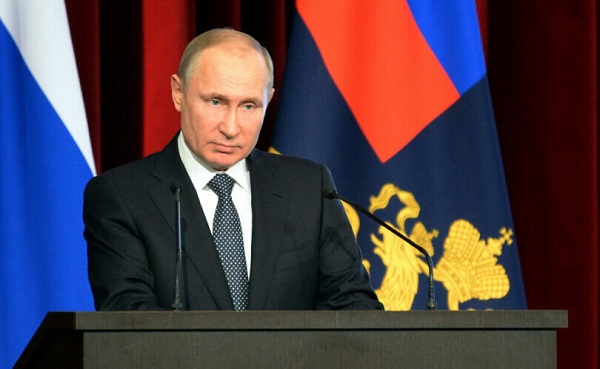conflict
Middle East War Shows No Signs Of Stopping One Year After Oct. 7 — And No Clear Path To Exit

From the Daily Caller News Foundation
By Jake Smith
The chaos of Hamas’ October 7, 2023, invasion of Israel is still being felt one year later as the broader region grapples with a conflict that has shown no signs of stopping.
Hamas Oct. 7 terrorist attacks caught Israel by surprise and resulted in the murder of approximately 1,200 people and the kidnapping of hundreds of others, including American citizens. Israel retaliated and launched a war against Hamas in Gaza, which a year later has not ended but instead spilled into the broader Middle East and drawn in other bad actors such as Hezbollah and Iran.
“We’re still stuck in Oct. 7, 2023, in one unending day of terror, of fear, of anger, of despair,” Yuval Baron, an Israeli citizen whose father-in-law is still being held by Hamas in Gaza, told Reuters.
Israeli forces have largely occupied Gaza and killed thousands of Hamas operatives, largely crippling the terrorist group’s capabilities, although it has come at great humanitarian cost to the enclave, according to Reuters. The conflict has displaced millions of Palestinians and wreaked havoc across Gaza, leaving many areas uninhabitable, Bloomberg reported.
The effort to build Gaza after the fighting ends — whenever that may be — will likely be an incredibly costly venture that could take years and require joint cooperation between several Arab states, according to Bloomberg. Millions of tons of debris will have to be cleared from the enclave while buildings are repaired or replaced.
“We thought it would be two months [of fighting] — at most,” Mohammed Shakib Hassan, a Palestinian civil servant who fled his home after Israeli forces entered Gaza last year, told The New York Times. “Twelve months have passed in front of our eyes.”
Israel, with the help of the U.S., has on several occasions made offers for a ceasefire in Gaza conditioned on the release of the remaining hostages held by Hamas and the surrender of the terrorist group, but these proposals have been rejectedmultiple times. Yayha Sinwar, the leader of Hamas who has been hiding underground in Gaza, reportedly believes that he is not going to survive the war and has zero intention of reaching a ceasefire deal with Israel at this point in the conflict, according to U.S. intelligence assessments reviewed by The New York Times.
The Biden-Harris administration has spent months brokering negotiations between Israel and Hamas and working with regional mediators to try to reach a deal, but these efforts have largely been fruitless. Though President Biden has on several occasions predicted that a ceasefire could be reached in short order, his own officials now privately believe it will be near impossible to get a deal done between now and January, the end of Biden’s term.
“They’re probably not going to get one before the election, or before January either. But that’s not on them, per se. It speaks to the difficulty of how far apart [Israel and Hamas] are,” former State Department official Gabriel Noronha told the Daily Caller News Foundation in September.
There have been various roadblocks to getting a deal done. Specifically, Israel wants to leave troops along the Gaza-Egyptian border, arguing that it would stonewall Hamas from trafficking in weapons, but Hamas has rejected this term.
Though the prospects of a deal are unlikely at this point, Israel’s war with Hamas in Gaza has largely come to a close as the terrorist group’s capabilities have been vastly diminished.
“Hamas is a shadow of its former self. Israel is going to continue to try to eradicate them, but it’s sort of a guerilla campaign. Hamas is being starved and smoked out. I suspect that you’re going to see Hamas go underground somewhat — more figuratively than literally at this point,” Noronha told the DCNF last month.
Instead, Israel has shifted much of its forces and focus away from Gaza and toward Lebanon, which houses the Iranian-backed terrorist group Hezbollah. Hezbollah is Iran’s largest terrorist group in the Middle East and has engaged in cross-fire skirmishes with Israel since last October out of support for Hamas, displacing thousands of civilians near the Israel-Lebanon border, according to NPR.
Hostilities between Israel and Hezbollah have reached a boiling point in recent weeks, as Israel has launched sweeping airstrikes against the terrorist group in southern Lebanon and killed the group’s leader in an airstrike in late September, according to The Washington Post. Israeli forces have begun ground raids against Hezbollah targets in Lebanon, in what could be the prelude to a much larger ground invasion.
The Biden-Harris Administration, along with other allies, also put forward on Sep. 26 a separate ceasefire proposal for Israel and Hezbollah, although it was seemingly ignored by both parties.
“It’s clear that Israel is determined to rid Lebanon of Hezbollah,” senior fellow at the Strauss Center and former Pentagon official Simone Ledeen told the DCNF. “They need Hezbollah to lay down their arms and surrender… the Israelis [are] really focused on getting to that objective.”
The multi-front Middle East conflict extends also to Iran, which — though it has helped orchestrate and fund the various terror attacks against Israel — made an unprecedented move in April and launched a sweeping missile strike against Israel from directly within Iran’s borders, according to the Center for Strategic and International Studies. Iran launched a similar attack against Israel last week in the form of roughly 180 missiles, most of which were intercepted by U.S. and Israeli forces.
Israel is expected to respond with an attack directly against Iran, although the timing and nature of the move is publicly unknown. The Biden-Harris administration is helping coordinate the attack with Israel, though it wants Israel to avoidgoing after the country’s nuclear facilities.
“The launch of over 180 ballistic missiles by Tehran requires a decisive reaction to prevent future attacks,” Israeli intelligence agent Avi Melamed said in a statement on Monday. “Currently, it seems that Israel is finalizing its operational plans while the U.S. prepares munitions to defensively counter any potential Iranian counterstrike.”
The conflict extends even further into Iraq, Syria and Yemen, all hotspots for other various Iranian-backed terrorist groups that have attacked U.S. and Israeli forces in the region since last October, according to Axios. Israeli forces have launched a series in those regions, too, in recent months.
Until the current Middle East conflict comes to an end, the possibility of regional peace may be too far out of reach, even as that remains a goal for other key Arab states and Western nations. Iran’s “axis of resistance” has taken severe blows since last October, according to Axios.
But Israeli forces are stretched across multiple fronts in a conflict with no clear end game, and the Israeli people seem to be growing more and more weary of the conflict; 23% of Israelis considered leaving the country in the last year, according to a recent poll cited by Axios.
“This war won’t end because nobody is willing to blink,” Thomas Nides, former U.S. ambassador to Israel, told the Times. “In the meantime, everyone is losing — hostages and their families, innocent Palestinians, Israelis displaced from northern Israel, Lebanese civilians. And it’s truly tragic.”
Artificial Intelligence
AI Drone ‘Swarms’ Unleashed On Ukraine Battlefields, Marking New Era Of Warfare


From the Daily Caller News Foundation
Artificial intelligence-powered drones are making their first appearances on the battlefield in the Russia-Ukraine war as warfare creeps closer to full automation.
In bombardments on Russian targets in the past year, Ukrainian drones acting in concert were able to independently determine where to strike without human input.
It’s the first battlefield use of AI “swarm” technology in a real-world environment, a senior Ukrainian official and Swarmer, the company who makes the software, told the Wall Street Journal in a Tuesday report. While drones have increasingly defined modern battlefields, swarms until now had been confined to testing rather than combat.
“You set the target and the drones do the rest,” Swarmer Chief Executive Serhii Kupriienko told the WSJ. “They work together, they adapt.”
So far, the Swarmer technology has been used hundreds of times to target Russia assets, but was first used a year ago to lay mines on the front, the Ukrainian official told the WSJ. The software has been tested with up to 25 drones at once, but is usually utilized with only three.
Kupriienko told the WSJ that he was preparing to test up to 100 drones at once with the linking software.
A common arrangement used on the battlefield includes one reconnaissance drone to scout out the target and two explosive drones delivering the payload on target, the official told the WSJ.
While Western nations such as the U.S., France and the United Kingdom are also pursuing drone swarm technology, they have not deployed swarm technology on the battlefield the way Ukraine has, according to the WSJ. Currently, autonomous weapons are not regulated by any international authority or binding agreement, but ethical concerns around the technology has led many to call for increased regulation of weapons like the Swarmer system.
The Ukrainian Ministry of Foreign Affairs did not immediately respond to the Daily Caller News Foundation’s request for comment.
conflict
Trump Pentagon Reportedly Blocking Ukraine From Firing Western Missiles Deep Into Russia


From the Daily Caller News Foundation
The Department of Defense has spent months blocking the Ukrainian military from using American and British-made missiles to hit targets deep inside Russia, The Wall Street Journal reported Sunday, citing unnamed U.S. officials.
Undersecretary of Defense for Policy Eldridge Colby reportedly designed the procedure to review requests to carry out the long-range strikes with weapons that are either of U.S. origin or that require American intelligence or use components provided by the U.S., according to the WSJ. Secretary of Defense Pete Hegseth reportedly has the final say on whether Ukrainian forces can use the MGM-140 ATACMS (Army Tactical Missile System) to hit targets in Russia.
The reported blocks on missile strikes coincides with a Trump administration effort to broker a peace deal between Russia and Ukraine. A Pentagon spokesperson declined to comment further on the matter.
BREAKING: President Vladimir Putin reacts to B-2 Flyover pic.twitter.com/1mzVn7DxlW
— Jack Poso 🇺🇸 (@JackPosobiec) August 15, 2025
The Biden administration allowed Ukraine to carry out strikes with ATACMS in November, weeks after President Donald Trump won the 2024 election, the New York Times reported. Trump criticized the move during a December interview with Time magazine.
“It’s crazy what’s taking place. It’s crazy,” Trump said. “I disagree very vehemently with sending missiles hundreds of miles into Russia. Why are we doing that? We’re just escalating this war and making it worse. That should not have been allowed to be done.”
Trump and Russian President Vladimir Putin met in Alaska on Aug. 15 for a summit meeting during which Trump sought to secure a cease-fire in Russia’s war with Ukraine. As Trump greeted Putin, a B-2A Spirit stealth bomber and several fighters carried out a flyover of Elmendorf Air Force Base.
Trump met with Ukrainian President Volodymyr Zelensky and major European leaders on Aug. 18 to update them on the summit.
In July, Trump reached an agreement with NATO where members of the alliance would purchase weapons, including MIM-104 Patriot surface-to-air missiles, and donate them to Ukraine.
-

 Alberta1 day ago
Alberta1 day agoThe Recall Trap: 21 Alberta MLA’s face recall petitions
-

 Fly Straight - John Ivison2 days ago
Fly Straight - John Ivison2 days agoMPs who cross the floor are dishonourable members
-

 illegal immigration1 day ago
illegal immigration1 day agoUS Notes 2.5 million illegals out and counting
-

 International1 day ago
International1 day agoTyler Robinson shows no remorse in first court appearance for Kirk assassination
-

 Energy1 day ago
Energy1 day agoCanada’s future prosperity runs through the northwest coast
-

 2025 Federal Election2 days ago
2025 Federal Election2 days agoToo Close for Comfort: Carney Floor Crosser Comes From a Riding Tainted by PRC Interference
-

 Business2 days ago
Business2 days agoHigh-speed rail between Toronto and Quebec City a costly boondoggle for Canadian taxpayers
-

 Business2 days ago
Business2 days agoThe world is no longer buying a transition to “something else” without defining what that is









